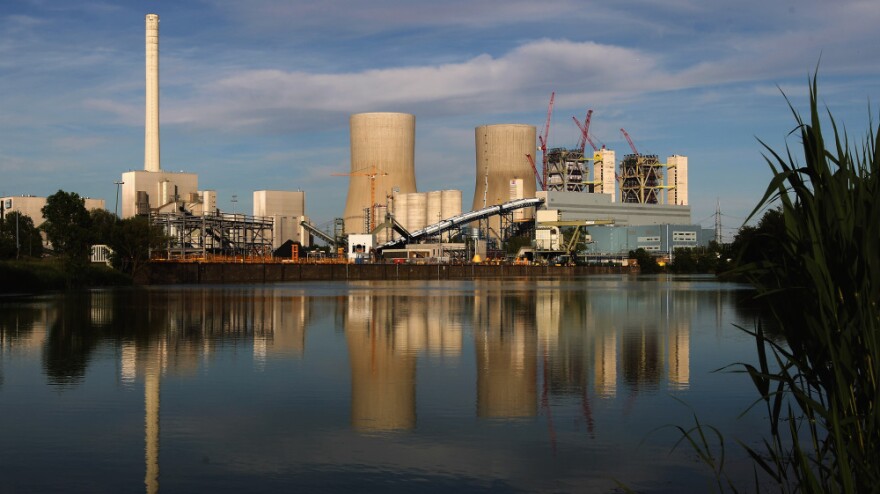Energy ministers from around the world met in London this week and got a scolding. The International Energy Agency warned the ministers that they are falling way behind in their efforts to wean the world from dirty sources of energy. Nations are nowhere near being on track to avert significant climate change in the coming decades.
It turns out that right now, just about everything is conspiring to make it harder to clean up the world's energy supply.
Nuclear power produces very little carbon dioxide, but it is on the ropes after the Fukushima meltdowns in Japan. New methods for extracting natural gas from underground make that fossil fuel much cheaper than low-carbon fuels.
And don't forget the economy.
"What's happened across the industrialized world is the governments are feeling poor these days," says David Victor at the University of California, San Diego. "So they are a lot less willing to put money into loan guarantees, production tax credits and feed-in tariffs and other policies that have historically been the big drivers of very low-emission technologies like nuclear and wind."
Wind subsidies are on the chopping block here in the United States. And clean energy subsidies have already been scaled way back in Europe, where wind and solar had been riding high, thanks to generous government support.
Michael Grubb, an economist at Cambridge University, says those subsidies proved to be too successful.
"People scrambled to put solar panels on their roofs a lot faster than governments had anticipated," Grubb says, "which meant the volume of subsidy that was going to be required for a much bigger volume of demand was going to get much more expensive. And they scaled back those programs."
That's good in that solar panels went up much faster than anticipated. But now it means that rapid growth is likely to stall. And as for other technologies, Grubb says it's tough to get the British public behind big, low-carbon energy projects these days."
"Nobody actually likes energy-production sources," Grubb says. "They object to nuclear. There's quite a strong push-back on onshore wind energy on the grounds of impact on the countryside. There's push-back on offshore wind energy, which is significantly more expensive than onshore."
And the British government is also stirring controversy by pushing ahead with plans to allow companies to use the new hydraulic fracturing technologies to prospect for natural gas in the English countryside. Britain is supposed to be phasing out fossil fuels, not exploiting new sources, the critics say.
Plans For Reaching Goals?
It's increasingly hard to see how these nations will stick to their ambitious promises to switch to clean energy in the coming decades.
"All those promises just don't add up in Europe," Victor says. Take Germany, for example. "They say they're going to phase out nuclear power and switch aggressively to renewables. But the program they have in place for renewables, especially wind, is extremely expensive. They don't have the public budget to do that right now. So I think all governments are going to be forced to re-evaluate the bold promises they've made so far."
And greenhouse gas emissions are rising rapidly in places that haven't made bold promises, like in China and India. The U.S. has no clear plan to reach its goal, which is to reduce emissions by 17 percent of 2005 levels by 2020. Emissions actually went up 3 percent last year.
Christiana Figueres, the executive secretary of the U.N. Framework Convention on Climate Change, which is negotiating new climate treaties, is still confident that Europe, at least, will meet its short-term goals for 2020. The hard part is achieving the much bigger reductions needed after that.
"The last 20 years have really put a very firm ground under our feet on the fundamental understanding of how we can solve this problem," Figueres says. "But now we have to do it, and take it to scale, and do it at the pace that is necessary."
And that's the problem. Victor says there's no credible plan in place to move the global economy away from dependence on fossil fuels.
"Under any politically realistic scenario, the world is in for a huge amount of climate change." So, he says, we'd better prepare for that eventuality.
Copyright 2020 NPR. To see more, visit https://www.npr.org. 9(MDAxODQzOTgwMDEyMTcyNjI4MTAxYWQyMw004))


